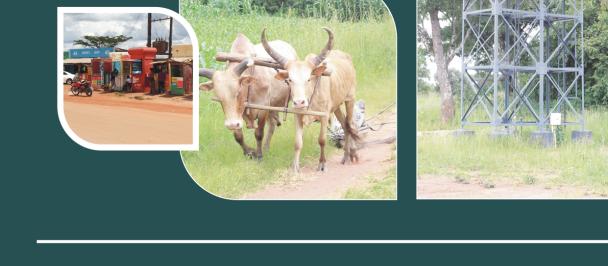Judith Mulenga, youth activist, moderating a STEM session during a UNDP-led seminar
In a country where girls face shattered dreams due to child marriage, Ritah Muchimba, 18, is one of the growing numbers of Zambian girls breaking with the tradition in her village and has set her sights on becoming an electrical engineer.
Hailing from Kalimina Village in the Central Province, Ritah, a grade 12 pupil from Momboshi Secondary School in Chisamba District, is girl with big dreams and an incredibly bright future. She wants to be an electrical engineer with a nation-wide impact, and with an education and access to supportive institutional structures, she believes she can achieve her goal.
“I want to be the first female electrical engineer from my village. I wish that my gender wouldn’t be a barrier to achieving my ambition. My dream is to help improve power generation in Zambia beyond hydroelectricity,” she says.
For many girls in Zambia and beyond, dreams like these are often stifled by several social and economic factors including poverty and a prevalence in Gender Based Violence (GBV) in their communities.
Marrying off girls once they reach puberty is a deeply engrained custom in traditional societies like Zambia, but with detrimental effects on health, education and development. Child brides are likely to drop out of school, curtailing opportunities and realization of their full potential.
Three in ten Zambian girls marry before they turn 18: one of the highest rates in the world, despite child marriage being illegal in the country.
With support from the GRZ-UN Joint Programme on GBV Phase II project, the government has set an intermediate goal of lowering the rate with a view to build “a Zambia free from child marriage by 2030”. The Zambian government has instituted a national response to address child marriage by launching a multi-stakeholder anti-child-marriage campaign. Structures to fight child marriage have been put in place including a civil society coalition against child marriage.
Funded by the Governments of Sweden and Ireland, the project is partnering with national institutions such as the Zambian National STEM Foundation and the Zambia Information and Communications Technology Authority (ZICTA) to encourage young women and girls to pursue a career in Science, Technology, Engineering and Mathematics (STEM).
Working in collaboration with these national institutions, the GRZ-UN Joint Programme on GBV Phase II project recently organised career talks with successful women to tap into the desire of girls to change their country for the better through STEM education.
The summit was attended by 80 high school girls from Chisamba, with interests in STEM related careers. Joined by the Zambian National STEM Foundation, ZICTA, and the First National Bank (FNB) through their H.E.R initiative, the GRZ-UNJP team shared the space with the young girls in attendance, informing them of the opportunities and structures available to them.
The session shed light on the vast career prospects available to young girls and further enlightened the girls on the freedom, independence, and fulfilment to be found in STEM related fields.
“The place of girls is not to be housewives, but at school,” says Henry Nkhoma, Director of Gender and Development within the Gender Division in the Office of the President. He said the government considers child marriage as an act of violence and is making efforts to end the scourge which is deeply rooted in the society.
"With the right orientation, there is no limit to what women and girls can accomplish. Opportunities to encourage women and girls to pursue careers in Science, Technology, Engineering and Mathematics (#STEM) will make them critical thinkers and innovators,” - UNDP Deputy Resident Representative in Zambia Roland Seri.
The gathering served as a reassurance to the young girls of their place in STEM. As a historically male-dominated field, the summit was an assuring reminder of the value to be mined when girls and women are included in these key development fields.
“Through such initiatives, talented and brilliant-minded girls like Rachel and her peers can be encouraged and equipped to break into and claim their rightful places in the world of STEM and other spaces like it,” says Michelo K. Moonga, Executive Director of the Zambian National STEM Foundation.
In this way, Moonga said young girls can create their own spaces within these fields, act as catalysts for change and key facilitators of inclusive development and, inevitably, minimise their risk of falling into the limiting and harmful cycles instigated by GBV.
As a resolution to the direct and powerful words of Rachel, “I wish that my gender wouldn’t be a barrier to achieving my ambition”, the career talks presented the girls with a platform to amplify their own skills with the support of systems meant to break down structures and institutions that limit girls and subjugate them to GBV.

 Locations
Locations





